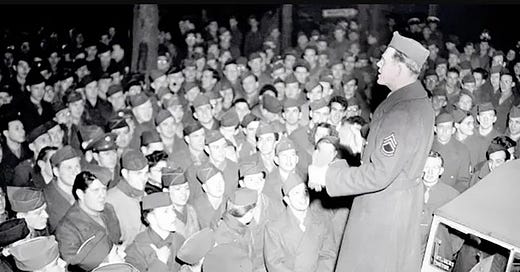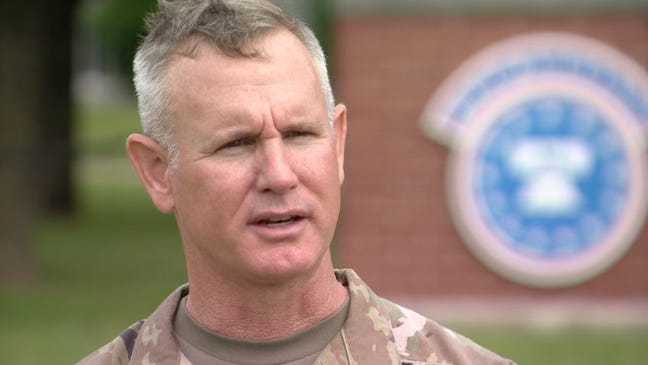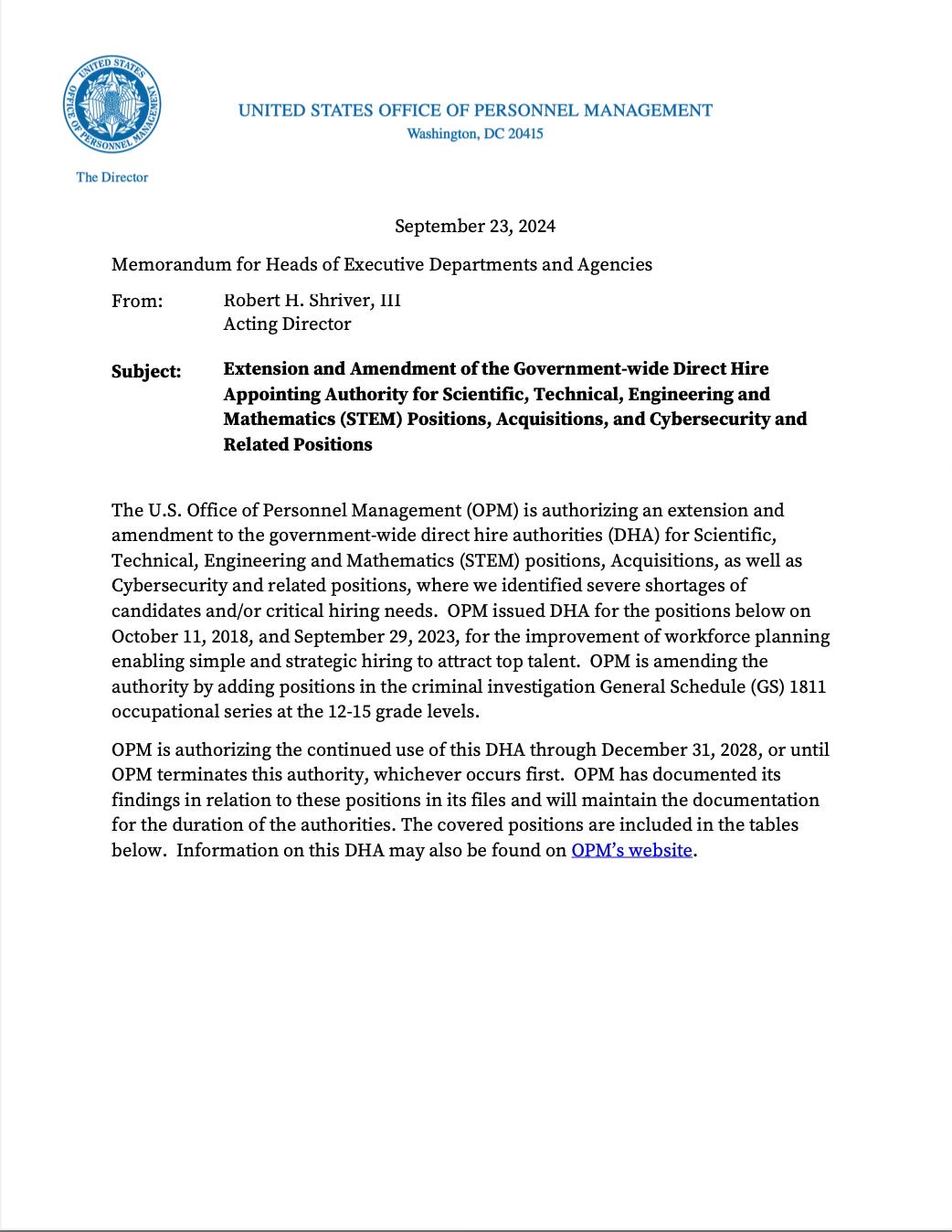After World War II, servicemen and women became eligible for certain preferential treatment as a thank you from a grateful nation. About 16 million Americans served in the military during that war. Among those benefits were the GI Bill’s educational opportunities, jobs training, unemployment insurance, low-interest rate VA home loans and hiring preference in civil service jobs, as codified in the Veterans' Preference Act of 1944.
Grover Cleveland, the 22nd president (and later, the 24th president), is generally credited with ushering in civil service reform where applicants are hired based on merit and not due to the political patronage system that had been in place. Ever since 1944, hiring preference for civil service employment has been available to certain eligible veterans and all disabled veterans.
Veterans hiring preference has been viewed as extending gratitude to those who served, as well as capturing the knowledge, skills and expertise of veterans. The preference adds a few points to veterans applications to ensure they get fair consideration. Today, veterans are not as common throughout society as they once were.
Throughout most of the 20th century, military service was performed by virtually all segments of society. The end of the draft and the adoption of an all-volunteer service in 1973 appears to have changed that. Military service is no longer shared equally by the public. Brigadier General John Cushman of the US Army Recruiting Command told this correspondent military service has been shouldered by far fewer families than ever before. “Eighty-percent of those that we enlist are from military backgrounds, have military families, and that's alarming to me,” Cushman observed.
Now, there’s this. That shrinking group that voluntarily serve our nation are no longer getting veterans preference in the hiring for dozens of categories of government jobs, especially those at the supervisory and management levels.
The Office of Personnel Management recently sent guidance to all federal agencies notifying them they may hire new employees while ignoring veteran and disabled veteran preferences, even though these preferences are required by federal law. This notice was applicable to STEM (science, technical, engineering and mathematics) and cyber-security positions in mid- to senior-GS level positions of GS 11-15. OPM’s September 23, 2024 letter told federal agencies “Individuals may be appointed to competitive service career, career-conditional, term, or temporary positions, as appropriate, without regard to provisions of 5 U.S.C. 3309-3318 or 5 CFR part 211 and part 337, subpart A.”
The references cited in the OPM letter: 5 U.S.C. 3309-3318, 5 CFR part 211 and part 337, subpart A are the federal law and code of federal regulations that require certain veteran categories and disabled veterans be given hiring preference. OPM waived those requirements.
The September 2024 letter is actually an extension of a similar letter issued in September 2023. That 2023 letter suggests OPM has been waiving veteran preference hiring in some senior-level positions since at least 2018.
The Defense Department issued a hiring matrix that lists dozens of positions in which direct-hire authority (non-competitive with no veteran hiring preference considered) is authorized by agency employment managers. This matrix seemingly includes jobs for which veterans would likely have the required skillsets such as maintenance, depot-level maintenance and repair, information technology, acquisition, intelligence, medical, accounting, military housing, and aircraft operations, just to name a few.
This is not the Departments of Agriculture and Commerce. It’s Defense, the military. It is a head scratcher that the Defense Department would actually ignore hiring veterans to fill jobs in the very cabinet agency in which they previously served.
Mark Hyman is a 35-year military veteran and an Emmy award-winning investigative journalist. Follow him on Twitter, Gettr, Parler, and Mastodon.world at @markhyman, and on Truth Social at @markhyman81.
Mark welcomes all news tips and story ideas in the strictest of confidence. You can reach him at markhyman.tv (at) gmail.com.








@Christopher,
You may think of veterans preference as an entitlement but one doesn’t get it just for converting oxygen to carbon dioxide. One has to serve, and with that service comes risk that one might not live long enough to benefit from the privilege. Sure, most of us serve under conditions that are no worse than a mild workout to our cave-man ancestors, but thousands have paid with their bodies, their mental health, or their lives. They have paid the debt and earned the privileges granted to them and the rest of their brothers and sisters. It is earned, but not always paid equally so it is hardly an entitlement.
Maybe even the DoD wants the flexibility to hire the best people for the job? Shocking, right?
It's an unpopular opinion on the right, but Veterans' Preference is just another form of affirmative action, with all the resulting entitlement mindset. As someone trying to join the federal government late in my career, I have been frustrated over and over, applying for positions for which I have excellent qualifications, but I can't get an interview because all the slots were taken by retired military using their Veterans' Preference. I think enough hiring managers got frustrated by having to interview people with no applicable skills when there were civilians with perfect resumes who could not even be considered.
I can see giving a leg up to young Americans who spent their 18-24 serving their country and might not have the same qualifications on paper as their civilian counterparts. But after that, there isn't much of a "penalty" career-wise.
Good riddance.